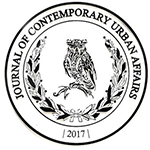
Journal of Contemporary Urban Affairs
ISSN 2475-6164 (online)
The primary goal of these guidelines is to ensure reviewers understand their responsibilities and provide constructive feedback to assist authors in their scientific research, regardless of the outcome (Acceptance/Rejection/Revision) of the peer-review process. The guidelines are organized into ten essential points, followed by a detailed description of each. We hope you find them helpful.
Essential Points
Detailed Guidelines
Before Starting Your Review:
Confidentiality: Treat all manuscript information as confidential. Do not use data from the manuscripts for personal gain. Destroy all copies of the manuscript after submitting your report. You may cite the reviewed paper after its publication in the journal.
During the Review Process:
Writing a Good Report:
The Editorial Process:
Reviewer Recognition:
Important Notes:
Journal of Contemporary Urban Affairs
ISSN 2475-6164 (online)
Contact: Publisher / Editorial Office of the Journal
Publisher: Alanya Üniversitesi, https://www.alanyauniversity.edu.tr/
Editor-in-Chief: Dr. Hourakhsh Ahmad Nia, Alanya University
Follow us on: Facebook / Twitter / Instagram / LinkedIn
This journal is published through an Open Journal System as part of the Public Knowledge Project (PKP).
This journal is licensed under a Creative Commons Attribution 4.0 International (CC BY) license.
![]()